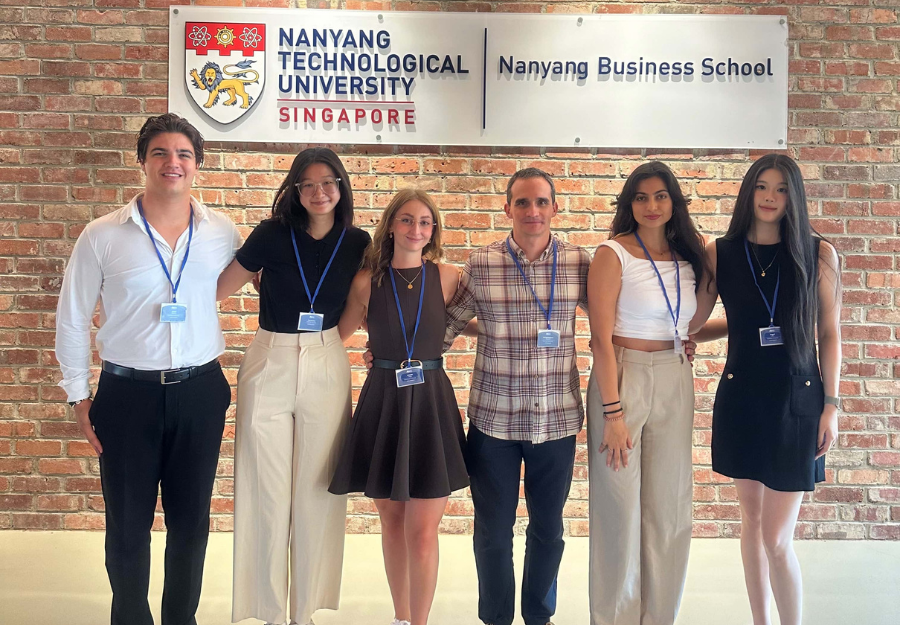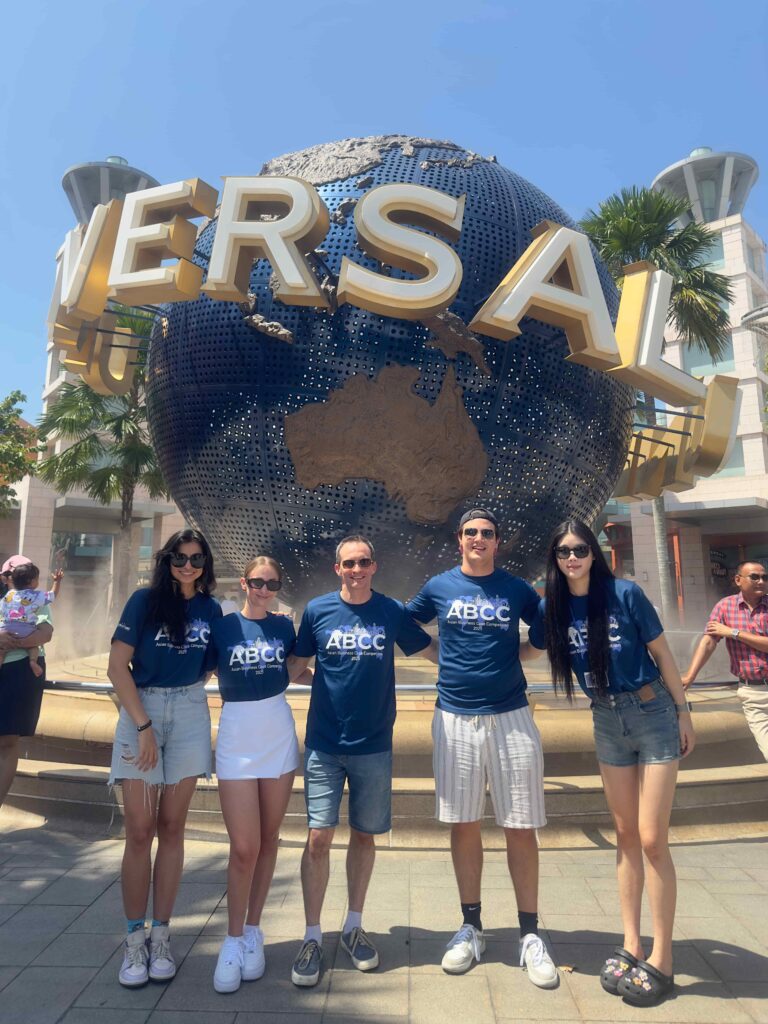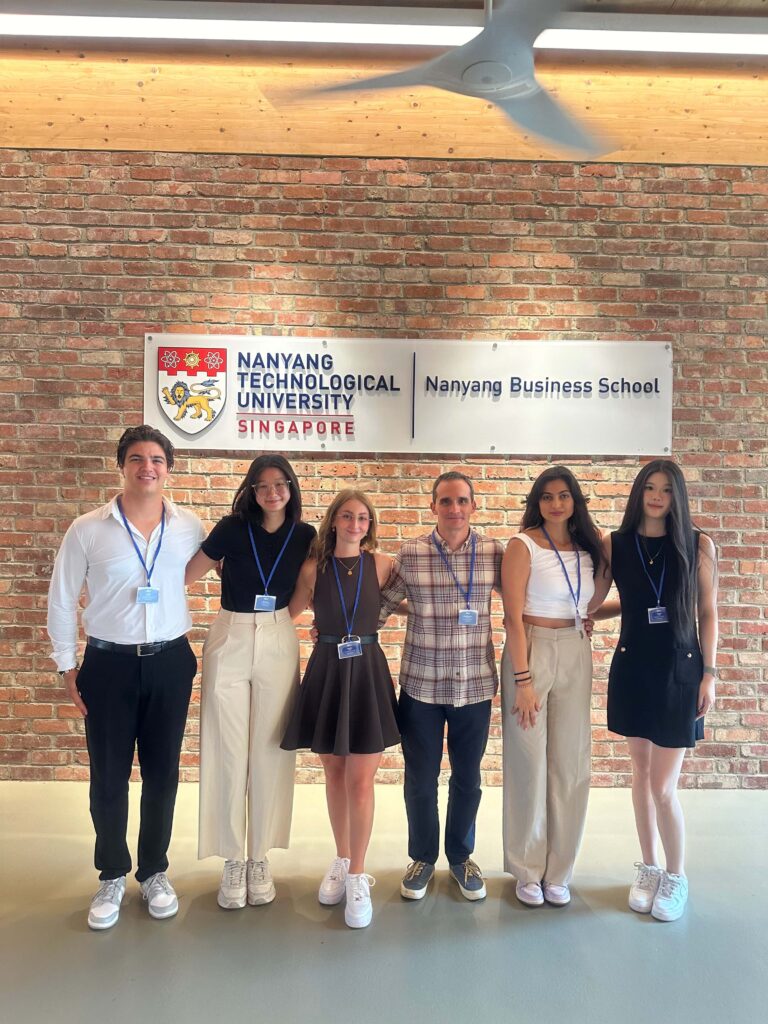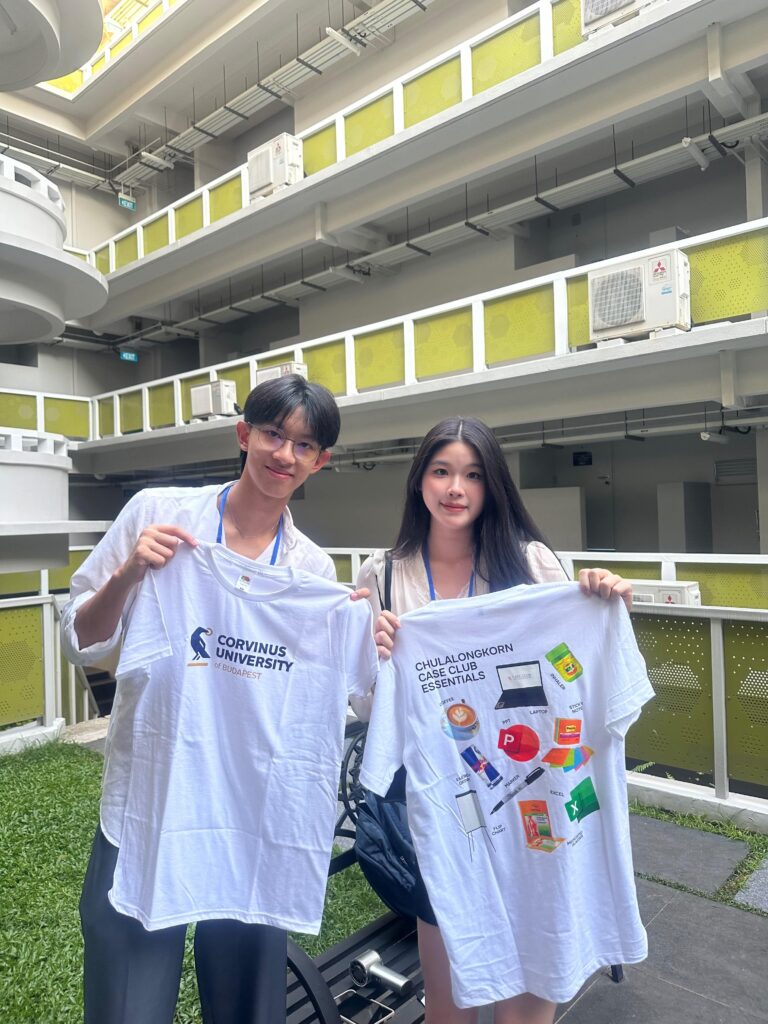Adapting to Succeed: How Corvinus Students Triumphed Together at ABCC 2025

The team was mentored by Dr. habil. Zsolt Matyusz, Associate Professor at the Institute of Operations and Decision Sciences at Corvinus University. In the weeks leading up to the competition, they focused on developing both team dynamics and the practical skills essential for case-solving. A large emphasis was placed on understanding the Singaporean market and its current trends. This was no easy feat, as this was Corvinus’s first time competing live on the ABCC (after two online participations in 2021 and 2022), and our team was the only one from outside the Asian-Pacific region, going up against competitors from Thailand, Singapore, Hong Kong, China, The Philippines, Australia and New Zealand.. As part of their preparation, the students worked through multiple six- and twenty-four-hour practice cases, which helped them refine their problem-solving process and strengthen their collaboration under pressure. The team’s advisor made sure that the competitors went not as individuals but as a united team. As put by Desislava:
“While we did have workshops on important topics such as Q&A handling, presentation delivery, strategy feasibility, and slide formatting, the majority of our time was spent on strengthening how we functioned as a whole team rather than as individuals. After each practice case, we held structured feedback sessions where we questioned one another about our solving process: what worked well, what fell short, and what could be improved moving forward. Overall, the preparation process was less about improvement as individuals and more about building a well-structured and collaborative team capable of tackling complex cases efficiently.”
In Singapore, the Corvinus team was challenged with two complex business cases: a 6-hour short case and a 24-hour long case, both presented in a 15-minute presentation, followed by a 15-minute Q&A. Both cases had pre-issued companies, so the team could research them beforehand.
The short case was for Mandai Wildlife Group, the company that runs the Singaporean Zoo. They challenged the students to effectively engage Gen Z and Gen Alpha in wildlife conservation and sustainability initiatives and make them more engaged with the “Mandai Universe” brand identity.
Our team combined its strategic know-how and European heritage to bring a unique solution that was already proven in the European market. This resonated with the juries and allowed the team to win their division.
“We were able to provide a complex solution that covers all stages of the customer journey to make touchpoints with the customers at different stages. It was an extremely interesting challenge.” – Suzy Shu
The 24-hour case was provided by GYK group, a company whose main portfolio includes accounting and consultancy services. They asked the teams to provide them with an expansion strategy in the ASEAN region, without having to open new HQs in the process. The team’s solution was very grounded, easy to understand, and easy to implement. The jury appreciated this, and thus the team was able to win this divisional round too, allowing them to proceed to the final for the overall victory.
“The jury highlighted that our solution was very logical, we used the current resources well in our strategy, and we focused a lot to be cost-efficient. They also mentioned that our presentation was great and easy to follow.” – Kornél Németh
In the final, Corvinus faced off against some of the best business schools in Asia: Chulalongkorn University and Mahidol University from Thailand, and Ateneo de Manila University from the Philippines. Our team presented its solution to the GYK company representatives, who awarded an impressive second place for their efforts behind Ateneo de Manila University. This marks the second podium finish for Corvinus on the international case competition circuit this semester.
Beyond the competition results, the team highlighted that their biggest growth came from how they learned to work together under pressure. Building strong team dynamics took time, especially in an international team where communication required extra effort, but finding the right balance allowed each member to contribute their strengths.
“The team dynamics were actually quite balanced, although it took us some time to settle in and learn how to work effectively with one another. Solving a case using only English was definitely a new challenge, as communication took longer, but I believe we managed it well. Each of us had unique roles in the team, some acted as moderators, others as idea-generators, and this created a great environment for us to express ourselves creatively while still thinking logically to develop solutions for every challenge.” – Suzy Shu
For the students, the competition also revealed that while university courses provide useful structures and tools, true success comes from knowing how and when to adapt them. Rather than applying the same framework to every case, they learned the importance of tailoring their approach to each unique challenge.
“As an individual, for me, the main thing that I learned was how to use all the skills provided to me during COBE and CIBS and modify them to match the case. During the university courses, we learn the basic structure of case solving; however, for you to do it successfully, you need to learn that you cannot use the same model to solve each case. For me, this was the most important skill that I gained during the competition.” – Desislava Dostinova
This openness to experimentation became a defining factor in their performance. Instead of sticking only to familiar methods, the team took risks, tried new frameworks, and learned from each other’s perspectives, which helped their solutions stand out from the rest.
“Our success was based on learning from each other and from our previous experiences on case competitions. We weren’t afraid to step out of our comfort zones and use new methods and frameworks for our solving, which made us stand out from the crowd and differentiate us from those teams who were all using the same tactics. We brought the new perspectives, which, from now on, can reshape the old templates.” – Rebeka Nagy
Looking back, the students agreed that beyond frameworks and strategies, what made the competition unforgettable were the shared experiences and friendships they built in Singapore. The mix of cultural discovery, teamwork, and the excitement of their strong performance created memories that will stay with them for years to come.
“In 20 years, I will remember that I had an amazing time with great people who I can truly call my friends. I will remember how we surprised everyone with our results and how many congratulations we had. It was a true culture shock to me, but I loved every moment of it, and I can’t wait for others to represent Corvinus in Singapore and achieve as good or even better results as we did.” – Kornél Németh
Huge congratulations to the team and their advisor for their amazing effort and result! We would also like to thank all the Case Track professors, invited jury guests, and the CCTC alumni for their help with preparing the team!


